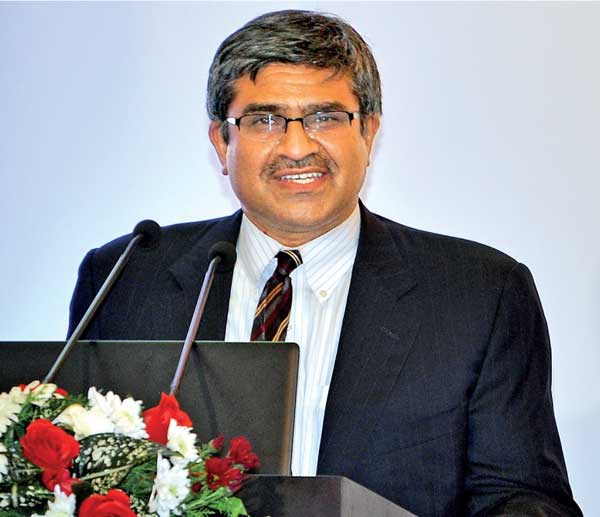Reply To:
Name - Reply Comment
 Dr. Amit Dar Pic by Nisal Baduge
Dr. Amit Dar Pic by Nisal Baduge
By Shabiya Ali Ahlam
The failure in tackling the human resource factor has become a major stumbling block in Sri Lanka’s growth story, and according to a top World Bank (WB) official to overcome the hurdles it is mandatory that a greater force is exerted in developing job relevant skills if the nation is to move up the efficiency curve.
“For Sri Lanka, building job relevant skills is really a primitive step in becoming a competitive and efficient middle income economy. The change in economic growth and structure has increased the demand for Sri Lankan labour, but the skills gap that has emerged in the changing labour market may be starting to hold back this economy,” opined World Bank Strategy & Operations, Human Development, and Education Global Practice Director Dr. Amit Dar.
Setting the stage to kick off discussions at the Sri Lanka Human Capital Summit 2016 that was held last week, Dr. Dar stated that in addition to alleviating poverty, skills development will be important for Sri Lanka for two key reasons; to adapt to the shift in global and local demands, and to ensure faster and productive growth of the economy.
Stating that today’s economy requires advanced flexible and tangible skills, it was asserted that workers must be able to adapt changes in the fast evolving industries and must strive to be competitive. Sri Lanka ranks 73rd in the World’s Competitive index.
Shedding light on the reality of the human resources issues faced in the county, Dr. Dar pointed out that the quality and quantity of skills that produced happens to be the third most significant constraint for company growth according to the feedback of employers. The first two issues are power, and taxes.
“Sri Lanka is a developing success story, but the challenge remains that 140,000 individuals entering the labour market complete no more than the secondary education. Lack of job specific skills is a major setback the government is facing and looking to address,” he stated.
Although Sri Lankans spend more time in education than many of its neighbours, it was highlighted that employers are questioning the system’s quality and relevance.
Despite measures taken to address this issue, employers are said to be “still complaining” of big mismatches between the supply and demand, which undermine productivity and growth.
The current scenario also spells out the disparities in the learning outcome in primary and secondary education. The WB official added that the lack of access to vocational training and higher education constraints the government’s ability to push forward growth.
To help ease the situation employers were urged to play a critical role in the entire system. “They need to have a voice at the table at policy level, need to be involved in decision making at institution level,” stressed Dr. Dar.
Furthermore, with nearly two third of all employment falling under the informal sector, it was stressed that enhancing the productivity of such workers is critical for the economic growth.
“Competing in today’s global economy is a complex task and countries not only need advance technical educational skills but also a flexible workforce that will adjust rapid shifts and demands. That is why investing in skills is vital for a country’s economic growth and competitiveness,” asserted the WB official.